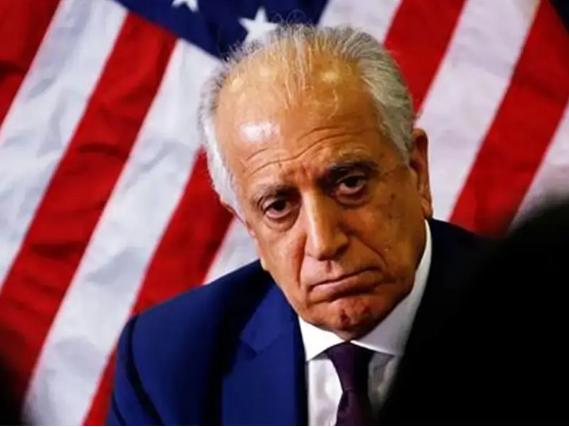United States Met Primary Objectives in Afghanistan, Says Khalilzad

Zalmay Khalilzad, former U.S. Ambassador to Afghanistan, has dismissed the Taliban's assertion that U.S. forces withdrew from Afghanistan due to defeat.
He clarified that the U.S. withdrawal was a "strategic decision," as continuing the conflict was no longer beneficial to U.S. interests.
Khalilzad emphasized that the U.S. achieved its "most important goal" in Afghanistan, which was to counter terrorism that had threatened American security.
On August 15, the Taliban commemorated what they called "Victory Day," celebrating the perceived defeat of U.S. forces and the U.S.-backed Afghan government. The U.S. completed its withdrawal on August 30, 2021, in accordance with the Doha agreement with the Taliban. On August 15, the Afghan government collapsed following President Ashraf Ghani's departure from Kabul.
In an interview with Afghanistan International, Khalilzad explained, "The U.S. intervened in Afghanistan due to the September 11 attacks and to wage a war on terrorism. The U.S. has successfully achieved its security objectives in Afghanistan."
He further noted that for the U.S., "countering terrorism and addressing security threats" took precedence over establishing a democratic government in Afghanistan.
Earlier, Khalilzad told the U.S. Congress's Foreign Relations Committee that Washington had shifted its focus to competing with China and Russia, reducing its interest in maintaining a presence in Afghanistan.
Although Khalilzad's assessment of U.S. achievements in Afghanistan is optimistic, reports from the United Nations Security Council present a more concerning perspective on the resurgence of terrorist groups in the country.
A 26-page report from the UN Security Council's Sanctions Monitoring Team, released in June, highlighted that terrorist groups continue to view Afghanistan as a safe haven, with the Taliban's tolerance towards these groups enabling terrorism to potentially spread into neighbouring regions.
The report noted that the Taliban's inability to control these groups has rejuvenated al-Qaeda and ISIS, with al-Qaeda quietly re-establishing bases and offices in five provinces, including Kabul and Nangarhar.
On August 15, the Pentagon stated that it is "closely monitoring" the activities of terrorist groups, including ISIS, within and around Afghanistan.
Previously, U.S. officials informed the House Foreign Affairs Committee that surveillance of terrorist activities in Afghanistan would be maintained through aerial reconnaissance.
Despite concerns, Washington appears to hold a cautiously optimistic view of its agreements with the Taliban in Doha, trusting that the Taliban will honor their commitment to prevent any group from using Afghan territory to launch attacks against other countries.